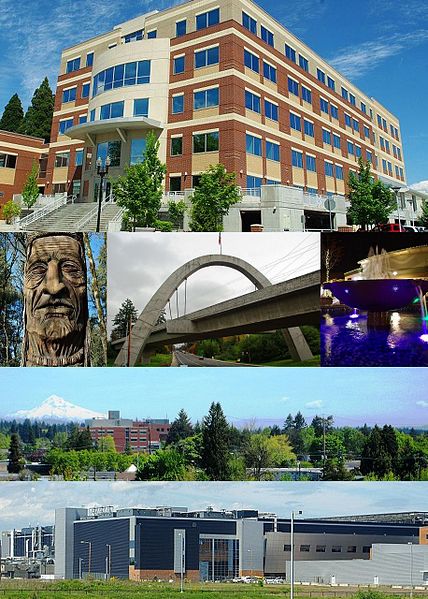

Hillsboro; Work by M.O. Stevens
"The financial reality of the education industry" is the title of a new article from OpenSource.com (Red Hat-run). It says [1] that "[h]igher education is not just about producing valuable workers, but about educating people to become thinking, lifelong learners who contribute in many positive ways to society, be that local or global." In reality, however, based on emerging trends and disturbing new evidence, the schools system is about indoctrination and curriculum is set by those in power in order to help them keep power (or gain wealth). "Center for Copyright Information wants to introduce an anti-piracy curriculum to US schools," says this new article [2], showing an utter abuse of this system. Contrariwise, in the Hillsboro School District, students are said to be shifting towards GNU/Linux [3] and OpenSource.com promotes the idea of free sharing of information in schools [4,5]. What's education really about if not free dissemination of important knowledge? Where would schools be if every taught item needed to be "licensed"?
Higher education is not just about producing valuable workers, but about educating people to become thinking, lifelong learners who contribute in many positive ways to society, be that local or global.
COMMON LANGUAGE: Center for Copyright Information wants to introduce an anti-piracy curriculum to US schools.
When it comes to learning about the evils of internet piracy, Hollywood studios and the major music labels want kids to start young.
A nonprofit group called the Center for Copyright Information has commissioned a school curriculum to teach primary-age children about the value of copyrights.
The taxpayers have spoken: the Hillsboro School District might need faster computers, but it’s not going to buy them by increasing residents’ property tax bills with yet another bond measure.
The district’s five-year, $25 million bond failed during the Nov. 5 election, with 54 percent of voters rejecting the measure.
So the district is going to have to find another way to provide students with technological opportunities without spending nearly as much. There may be a solution that could speed up the computers, and the best part is that it is free: Ubuntu, an open-source Linux operating system.
The debate over purpose is whether online material is primarily a financial tool to create new revenue streams by video recording lectures to reach distance and nontraditional students or an opportunity to systemically restructure the substance and nature of higher education.
That said, every public body has the same freedom that any non-public body has in determining whether to acquire, develop, and release software under conditions of free and open source software. This is due to the fact that all public administrations in Italy are obliged to distribute to any other public administration all software which has been developed by or for them, in source code and without any charges (called the Reuse Rule). This fits perfectly in an all-free software workflow, where distribution under the Reuse Rule is not restricted to the Italian public administrations, but is public, to everybody.
The Department of Public Service and Administration (DPSA) is conducting an impact assessment on the implementation of its free and open source software (FOSS) policy.
Here’s a development that could have enormous global implications for the search for a new commons-based economic paradigm. Working with an academic partner, the Government of Ecuador has launched a major strategic research project to "fundamentally re-imagine Ecuador" based on the principles of open networks, peer production, and commoning.
Vietnam's ministries, provincial administrations and municipalities are turning to free and open source, building on European examples, policies and concrete software solutions. To intensify collaboration, a Vietnamese delegation, including representatives from the Ministry of Science & Technology, universities and free software firms, met with the European Commission's ISA Programme last month.